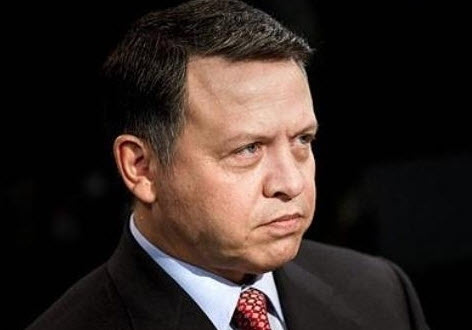Withdrawal, Jordan’s Only Option

The people of Jordan will vote for 150 parliament representatives in the last week of January to determine the composition of the 17th parliament. This election is being held since the last parliament was dissolved by King Abdullah II, Jordan's King, in October 2012. This is the 4th time that King Abdullah II has attempted to dissolve the parliament since 2000 when he became the king. But the domestic situation of this country is not desirable. The presence of protesters in the streets of Amman and other important cities of this country has grown considerably. Their demands are serious. Recent developments in the Arab countries have increased the level of demands and have politicized them. Although economic problems, inflation, and unemployment are important elements in the formation of these protests, what is more the concern of the main protest movement, i.e. the high committee of opposition parties, is the election laws and the King's authority. The mentioned committee was recently established with the participation of the main opposition groups and parties and at the forefront the Muslim Brotherhood and its political party, the Islamic Action Front. This committee has organized and directed various demonstrations in different regions of the country.
The government of Jordan intends to hold the parliamentary elections under any conditions on the 23rd of January. It is predicted that the number of voters will be low. The reason is the dissatisfaction of the voters with regard to the growing financial corruption of government institutions close to the royal court and the increasing prices of goods during recent months. Thus, the government is making great efforts to bring people to the ballot boxes. Within this framework, two of the recent measures of the government and the King should be considered. In a statement containing 4 points, King Abdullah II has asked the people to follow, along with him, the democratic trend of the country and pursue their demands through their representatives in the parliament instead of pouring into the streets. In line with this measure, the Judiciary of the country, in an unusual measure, has introduced those who were engaged in financial corruption. Last week, the head of Jordan Phosphate Mines, who has close relations with the King and has influence in the court, became one of the targets and his properties were confiscated. Phosphate is the biggest mineral and largest source of currency income for Jordan.
These measures are analyzed as being taken to attract people's participation in the upcoming election. Of course, the opposition parties have insisted on their political demands based on changing the election laws as a condition to partake in the election. The previous election laws allowed every Jordanian to elect only one representative. Recently, the King balanced these laws to calm the situation. As a result, in addition to voting for one representative, every Jordanian can vote for a list of candidates as a package. This measure taken by the King was considered a symbolic and deceiving move, for it did not allow more than 27 parliamentary seats to be chosen through these lists. Furthermore, he increased the number of representatives from 120 to 150. The opposition, the Muslim Brotherhood in particular, did not accept this change and still insists on boycotting the elections.
The government of Jordan has no option but to give concessions to the opposition in line with regional developments in order to prevent uncontrollable conditions, the signs of which can be observed. Four months ago, the government of Jordan attempted to increase fuel prices by 20 to 33%, but it was faced with vast protests of the people and strikes in large sectors of the industry and transportation of the country. Therefore, the King withdrew from his position and returned the fuel price to the previous number. Today, Jordanian society, besides economic problems, suffers from the presence of more than 100,000 Syrians who seek asylum in the north of the country. The decrease in gas imports from Egypt through the Sinai Desert because of recent explosions, less foreign tourists and a decrease in Arab investments have worsened the situation. It is predicted that the absence of an accurate response to the demands of the opposition groups will make the political situation more difficult. The possible scenario for Jordan’s next step is the continuing withdrawal of the government and the royal court from their positions.

